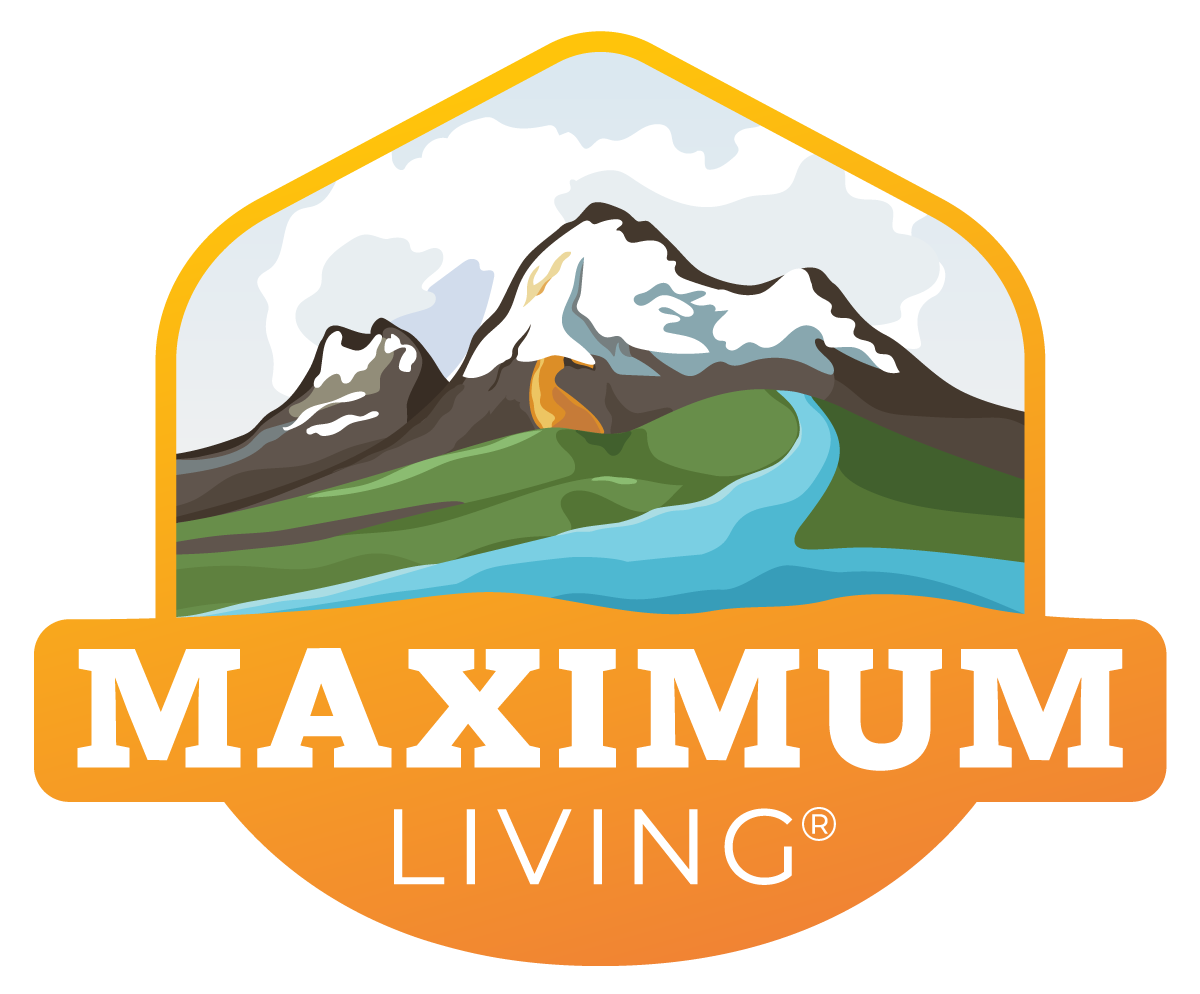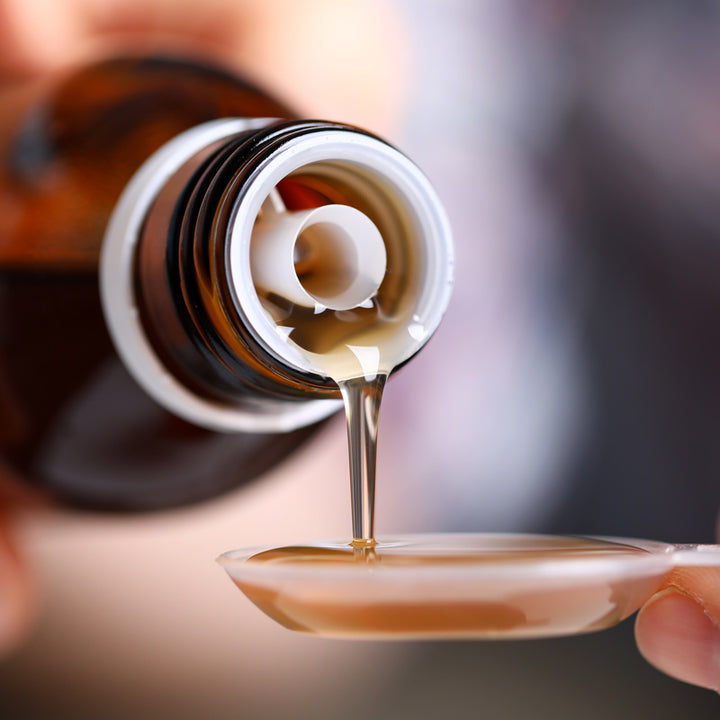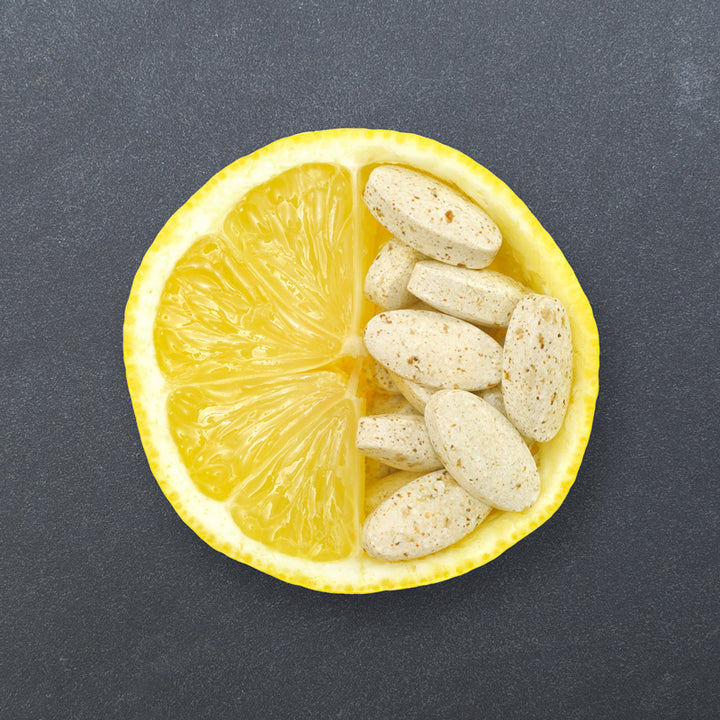Biotin for Natural Hair Growth: Does It Work?
Take a trip down any store’s shampoo aisle, and you’ll probably see the word biotin splashed across labels – but what is it and what is the best way to get it?
In this post, we’ll dive into the nitty-gritty details of biotin, how it can help the health of your hair (specifically, how it may help grow natural hair), the other benefits of this vitamin, and the best ways to get it!
Ready to discover the natural secret your hair has been missing? Let’s dive in!
What is Biotin?
Biotin is one of the B vitamins (B7 to be exact), but it also has another name – Vitamin H.
The “H” stands for “Haar und Haut.” Translated, that means “hair and skin” in English.
With a name like that, it’s no surprise that biotin has shown to be a contributor to glowing, hair-flip kind of hair, but what does it actually do?
As a water-soluble vitamin, it’s a key player in the conversion of food into energy, which helps enzymes break down fats, carbs, and proteins.
According to Medical News Today, biotin specifically helps with:
- Gluconeogenesis (aka “brain fuel”): Biotin-containing enzymes help in the production of glucose from amino acids and other sources. Your brain relies on this process, as it uses glucose as its main form of fuel. In other words, biotin helps in the creation of the fuel your brain uses to think, learn, and remember.
-
Fatty acid synthesis: Thanks to biotin, enzymes can initiate reactions that help produce fatty acids. Fatty acids are critical for energy storage, the creation of cell membranes, the regulation of many body processes, and more. Basically, this means it can help with your overall energy and recovery process. Specifically, it can play a role in the creation of cells that grow hair and nails …
- Nail growth and strength: Biotin plays a key role in nail growth and strength. Enzymes with biotin help break down amino acids. Some of these amino acids help build proteins that grow parts of our bodies, like muscles and nails. Biotin also helps produce fatty acids that create cells responsible for nail growth.
- Amino acid breakdown: Enzymes with biotin help metabolize many key amino acids. Amino acids have a variety of roles in the body and are involved in many of its functions, such as digestion. Your body needs 20 different amino acids to grow and function like normal. So what does that mean? Amino acids help your body grow muscles, assist your immune system to function properly, and regulate appetite, sleep, and mood.
All right, we get it – biotin is an MVP. But how is it going to give you the locks you’ve always dreamed of?
To answer that, let’s look at what happens when you don’t have enough biotin in your body.
The Science Behind Biotin and Natural Hair Growth
According to the Harvard School of Public Health, people with a biotin deficiency may have the following symptoms:
- Thinning hair
- Scaly skin rashes, especially around the nose, mouth, and eyes
- Frail, brittle nails
And, when your body doesn’t have enough biotin, you may also experience hair loss. So, it’s no surprise that it’s known for strengthening hair and promoting hair growth.
In an interview with dermatologist Dr. Christina Weng, she said biotin is a natural supporter for the normal function and growth of hair, and that it may also help those with thinning hair caused from aging or stress.
“Biotin is an essential vitamin in the B vitamin family … It is important in supporting the normal function and growth of skin, hair, and nails,” she says. “... For hair loss from age-related thinning or stress, taking a biotin supplement probably won't hurt, and some have noted anecdotal benefits.”
One 2015 study, researchers looked at how women responded to taking biotin twice per day for 90 days. The study found that biotin-users experienced “a significant amount of hair growth” and less shedding compared to those who took a placebo over the same period.
Did you know?
The adequate intake level of biotin according to The Food and Nutrition Board of the Institute of Medicine is 30 mcg for adult men and women.
And, biotin is a key ingredient in our liquid supplement MineralRich.
Our customers have noticed the benefits of it while using our product. Here’s what a few of them had to say!


Black hair and biotin: How can biotin specifically help natural hair?
All the research in the world can’t speak as well as real life success stories of biotin and natural hair growth, specifically for black hair.
These success stories are made even more worthy of attention when they come from a nutritionist and Ph.D.
In an interview with Ebony, nutritionist Rovenia “Dr. Ro” Brock, Ph.D., discussed her own struggles with thinning hair, specifically a bald spot caused by a bad perm.
She put her nutrition knowledge to the test and decided to use her own concoction of natural ingredients, plus 5,000 mcg of biotin a day. After doing this, Dr. Ro began locking her hair, and the hair in the area of the bald spot is now as long as her other locks, she says.
Dr. Ro is not the only one who has found success with supplementing biotin.
YouTube influencer King Bril talks about his journey with natural hair growth. He consulted his friends and acquaintances he knew with long hair to see what their secret was. With biotin supplements, he reports that his hair grew about 8 inches.
Another YouTube influencer, Patrice D’Evans, went on her own journey of hair growth last summer. With the goal of growing her hair past shoulder-length and strengthening her hair from rice water damage, she began taking MineralRich. (Note: We did not pay or compensate for this testimonial. We were just as surprised and excited to see her video as you probably are!)
Using our liquid supplement with biotin and collagen-producing silica, Patrice was amazed with her results. She passed her goal and gives a lot of the credit to her daily shot of MineralRich. She urgers her followers to not worry about trends or fads, but to stick with what really works for you.
“If you’ve had rice water damage, [MineralRich] is something to take internally that can help to grow your hair back and strengthen it,” she says.
Biotin for skin health
Your hair is not the only part of your body that can benefit from biotin.
Since symptoms of biotin deficiency can include brittle nails and skin rashes, your skin and nails could be a good indicator of whether you’re getting enough biotin.
If you have any of these symptoms, focusing on upping your biotin intake may help.
A study in 2019 showed 72 women had “significantly improved skin hydration, roughness, and elasticity” after 12 weeks of taking a supplement each day that contained collagen and biotin, among other ingredients.
Biotin-rich foods: What are the best ways to get biotin?
Biotin is found in many foods that are considered part of a healthy, balanced diet, such as vegetables, whole grains, and lean meats. You may already enjoy these biotin-rich foods in your regular diet:
-
Cooked Eggs
Eggs are a mega producer of biotin. One whole cooked egg contains up to 10 mcg of biotin.
-
Nuts and Seeds
The amount of biotin will vary depending on the nut or seed, but there are many varieties to choose from depending on which your tastebuds prefer. For example, in a quarter of a cup, roasted almonds have 1.5 mcg of biotin, sunflower seeds have 2.6 mcg, and walnuts contain 5.7 mcg.
-
Salmon
A 6-ounce serving of cooked salmon has 10 mcg of biotin — more than a third of the daily adequate intake!
-
Avocado
Avocados, along with being a “healthy fat,” can contain up to 10 mcg of biotin in a 100-gram serving.
-
Sweet Potatoes
In addition to being a good source of Vitamin A, sweet potatoes have about 2.4 mcg of biotin in a half-cup serving.
As you can see, there are many ways to get biotin through your diet, but there are a few factors that may make you more likely to have a deficiency – regardless of an adequate diet.
- Pregnant women have a higher chance of showing a biotin deficiency.
- Consuming alcohol can block the absorption of biotin in the body.
- If you enjoy raw eggs in cookie dough or maybe a homemade mayo recipe, it may be preventing the absorption of biotin as well due to avidin, a protein found in raw eggs.
Even if you don’t fall into one of the categories above, you may still want a bit of a boost to naturally enhance your hair, skin, and nails.
If so, supplements may be what you are looking for.
And the great news is you don’t have to worry about taking “too much biotin.” There is no evidence that high-doses of biotin have a negative effect on the body.
Best Liquid Biotin Supplement + Trace Minerals
Maximum Living has been providing people with a biotin boost with its liquid mineral drink MineralRich since 1992. In every 1 fluid ounce daily shot, you get 200 mcg of biotin! That is 20 times the amount found in one egg.
MineralRich is harvested from The Great Salt Lake and combines macro minerals, calcium, magnesium, zinc, selenium, manganese, chromium and potassium, in precise quantities together with trace minerals and Vitamins B12 and B7 for loads of health benefits.
MineralRich’s 1,000 mcg of collagen-promoting silica also promotes hair growth and stronger locks. Silica is one of several amino acids involved in building keratin and a key component of both hair and skin health.
According to LiveStrong, “this [trace] mineral helps to strengthen your blood vessels and improve circulation, which can stimulate the blood flow to your scalp and encourage growth. It also is a necessary component of your skin's connective tissues and helps to strengthen your bones, nails and hair.”
This, combined with biotin, creates a powerful combination for your hair-care routine.
Plus, your hair will not be the only benefit of taking MineralRich. Many of our customers also love the energy and other health benefits it provides. It truly is a win-win for your overall health!
Ready to give MineralRich a try? Click here to get a $10 off code of your first purchase of MineralRich!


